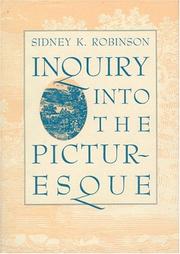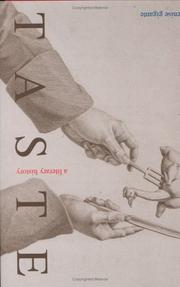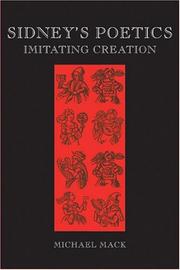| Listing 1 - 10 of 32 | << page >> |
Sort by
|
Book
ISBN: 8021082305 9788021082304 8021066628 Year: 2013 Publisher: [Place of publication not identified] Masarykova Univerzita
Abstract | Keywords | Export | Availability | Bookmark
 Loading...
Loading...Choose an application
- Reference Manager
- EndNote
- RefWorks (Direct export to RefWorks)
The thesis deals primarily with the term wit and its modern and historical usage in literary and aesthetic theories. Further, it concerned with the literary and aesthetic implications of the terms wit and esprit as they were theorized in critical writings of several authors of the early modern England and France. The thesis has two primary goals. The first goal is to re-assess the English concept of wit, nowadays regarded as an out-dated device of past poetic systems, and to present it as vital and useful part of the contemporary discourse. The second goal is to provide comparative reading of early modern English and French theoretical texts dealing with wit and esprit, respectively. Presenting ideas on the English term wit as employed in the theoretical writings in the light of its French equivalent esprit, I wish to demonstrate a gradual development of the terms from rhetoric to aesthetic.
English literature --- French literature --- Aesthetics, British. --- Aesthetics, French. --- French aesthetics --- Aesthetics, English --- British aesthetics --- English aesthetics --- History and criticism.

ISBN: 0226722511 Year: 1991 Publisher: Chicago (Ill.): University of Chicago press
Abstract | Keywords | Export | Availability | Bookmark
 Loading...
Loading...Choose an application
- Reference Manager
- EndNote
- RefWorks (Direct export to RefWorks)
Aesthetics, British --- -Aesthetics, Modern --- Picturesque, The --- Aesthetics --- Modern aesthetics --- Aesthetics, English --- British aesthetics --- English aesthetics --- Aesthetics, Modern. --- Picturesque, The. --- Aesthetics, Modern
Book
ISBN: 0582491436 Year: 1983 Publisher: London Longman
Abstract | Keywords | Export | Availability | Bookmark
 Loading...
Loading...Choose an application
- Reference Manager
- EndNote
- RefWorks (Direct export to RefWorks)
History of the United Kingdom and Ireland --- Aesthetics of art --- anno 1700-1799 --- Great Britain --- Art, British --- Aesthetics, British --- Art britannique --- Esthétique britannique --- -Art, British --- -British art --- Aesthetics, English --- British aesthetics --- English aesthetics --- -Aesthetics, British --- Esthétique britannique
Book
ISBN: 9780521734486 9780521518307 9781139023399 9781139624565 1139624563 113902339X 9781139615266 1139615262 9781139611541 1139611542 052151830X 0521734487 1107233097 9781107233096 1139609688 9781139609685 1139620843 9781139620840 1107253454 9781107253452 Year: 2013 Publisher: Cambridge New York Cambridge University Press
Abstract | Keywords | Export | Availability | Bookmark
 Loading...
Loading...Choose an application
- Reference Manager
- EndNote
- RefWorks (Direct export to RefWorks)
The British Aesthetic Tradition: From Shaftesbury to Wittgenstein is the first single volume to offer readers a comprehensive and systematic history of aesthetics in Britain from its inception in the early eighteenth century to major developments in Britain and beyond in the late twentieth century. The book consists of an introduction and eight chapters, and is divided into three parts. The first part, The Age of Taste, covers the eighteenth-century approaches of internal sense theorists, imagination theorists and associationists. The second, The Age of Romanticism, takes readers from debates over the picturesque through British Romanticism to late Victorian criticism. The third, The Age of Analysis, covers early twentieth-century theories of Formalism and Expressionism to conclude with Wittgenstein and a number of views inspired by his thought.
Aesthetics, British --- Aesthetics, American --- History --- Esthétique --- Histoire --- History. --- Histoire. --- American aesthetics --- Aesthetics, English --- British aesthetics --- English aesthetics --- Arts and Humanities --- Philosophy --- Aesthetics, British - History --- Aesthetics, American - History --- Esthétique
Book
ISBN: 0714820687 Year: 1980 Publisher: Oxford Phaidon
Abstract | Keywords | Export | Availability | Bookmark
 Loading...
Loading...Choose an application
- Reference Manager
- EndNote
- RefWorks (Direct export to RefWorks)
Aesthetics, British --- Aesthetics, French --- Art patronage --- Arts patronage --- Business patronage of the arts --- Corporations --- Maecenatism --- Patronage of art --- Art and industry --- French aesthetics --- Aesthetics, English --- British aesthetics --- English aesthetics --- CDL --- 75.034/035
Book
ISBN: 3261019700 Year: 1976 Publisher: Bern Lang
Abstract | Keywords | Export | Availability | Bookmark
 Loading...
Loading...Choose an application
- Reference Manager
- EndNote
- RefWorks (Direct export to RefWorks)
Philosophical anthropology --- Aesthetics, British --- 82.01 --- Aesthetics, English --- British aesthetics --- English aesthetics --- Anthropology, Philosophical --- Man (Philosophy) --- Civilization --- Life --- Ontology --- Humanism --- Persons --- Philosophy of mind --- Esthetica --- Philosophy --- Aesthetics, British. --- Philosophical anthropology. --- 82.01 Esthetica
Book
ISBN: 1108802311 1108767575 1108487653 9781108767576 1108802281 9781108487658 9781108720755 Year: 2020 Publisher: Cambridge Cambridge University Press
Abstract | Keywords | Export | Availability | Bookmark
 Loading...
Loading...Choose an application
- Reference Manager
- EndNote
- RefWorks (Direct export to RefWorks)
Elizabeth Swann investigates the relationship between the physical sense of taste and taste as a figurative term associated with knowledge and judgment in early modern literature and culture. She argues that - unlike aesthetic taste in the eighteenth century - discriminative taste was entwined with embodied experience in this period. Although taste was tarnished by its associations with Adam and Eve's fall from Eden, it also functioned positively, as a source of useful, and potentially redemptive, literary, spiritual, experimental, and intersubjective knowledge. Taste and Knowledge in Early Modern England juxtaposes canonical literary works by authors such as Shakespeare with a broad range of medical, polemical, theological, philosophical, didactic, and dietetic sources. In doing so, the book reveals the central importance of taste to the experience and articulation of key developments in the literate, religious, and social cultures of the sixteenth and seventeenth centuries.
Taste in literature. --- Aesthetics, British. --- Knowledge, Theory of, in literature. --- English literature --- Aesthetics, English --- British aesthetics --- English aesthetics --- History and criticism. --- England --- Intellectual life --- Taste in literature --- Aesthetics, British --- Knowledge, Theory of, in literature --- History and criticism

ISBN: 0300106521 9786611731250 1281731250 0300133057 9780300133059 9780300106527 9781281731258 6611731253 Year: 2005 Publisher: New Haven Yale University Press
Abstract | Keywords | Export | Availability | Bookmark
 Loading...
Loading...Choose an application
- Reference Manager
- EndNote
- RefWorks (Direct export to RefWorks)
What does eating have to do with aesthetic taste? While most accounts of aesthetic history avoid the gustatory aspects of taste, this book rewrites standard history to uncover the constitutive and dramatic tension between appetite and aesthetics at the heart of British literary tradition. From Milton through the Romantics, the metaphor of taste serves to mediate aesthetic judgment and consumerism, gusto and snobbery, gastronomes and gluttons, vampires and vegetarians, as well as the philosophy and physiology of food. The author advances a theory of taste based on Milton's model of the human as consumer (and digester) of food, words, and other commodities-a consumer whose tasteful, subliminal self remains haunted by its own corporeality. Radically rereading Wordsworth's feeding mind, Lamb's gastronomical essays, Byron's cannibals and other deviant diners, and Kantian nausea, Taste resituates Romanticism as a period that naturally saw the rise of the restaurant and the pleasures of the table as a cultural field for the practice of aesthetics.
Aesthetics, British. --- English literature --- Food habits in literature. --- Food in literature. --- Gastronomy in literature. --- Taste in literature. --- History and criticism. --- 82.01 --- 82.091 --- 82.091 Vergelijkende literatuurstudie --- Vergelijkende literatuurstudie --- 82.01 Esthetica --- Esthetica --- Aesthetics, British --- Food habits in literature --- Food in literature --- Gastronomy in literature --- Taste in literature --- Aesthetics, English --- British aesthetics --- English aesthetics --- History and criticism
Book
ISBN: 069106198X 1322885656 0691620679 1400872022 Year: 1971 Publisher: Princeton, N.J. Princeton University Press
Abstract | Keywords | Export | Availability | Bookmark
 Loading...
Loading...Choose an application
- Reference Manager
- EndNote
- RefWorks (Direct export to RefWorks)
This book traces the sources and development of Ruskin's aesthetic and critical theories. In his attempt to skirt the danger of excessive emotion and association in art, Ruskin's struggle with the sublime but not the picturesque, is, along with the pathetic fallacy, examined. These concepts, too, are considered in light of Ruskin's continuing religious and intellectual development. Finally, Ruskin's loss of faith is analyzed in relation to the problem of allegory in art. Ruskin argued for an unchanging standard of beauty, though the psychological nature of the artist is related to his art medium.Originally published in 1971.The Princeton Legacy Library uses the latest print-on-demand technology to again make available previously out-of-print books from the distinguished backlist of Princeton University Press. These editions preserve the original texts of these important books while presenting them in durable paperback and hardcover editions. The goal of the Princeton Legacy Library is to vastly increase access to the rich scholarly heritage found in the thousands of books published by Princeton University Press since its founding in 1905.
Aesthetics of art --- Ruskin, John --- Ruskin, John, --- Aesthetics, British --- -Criticism --- -Appraisal of books --- Aesthetics, English --- British aesthetics --- English aesthetics --- -Appraisal --- -Aesthetics --- -Ruskin, John --- Criticism --- History --- Aesthetics. --- Aesthetics --- Rëskin, Dzhon, --- Ruskin, --- Ruskin, J. --- Rŏsŭkʻin, --- Modern painters, Author of, --- Author of Modern painters, --- Graduate of Oxford, --- Rasukin, Jon, --- ラスキンジョン,

ISBN: 0813216214 9780813216218 0813213886 9780813213880 Year: 2005 Publisher: Washington, D.C. Catholic University of America Press
Abstract | Keywords | Export | Availability | Bookmark
 Loading...
Loading...Choose an application
- Reference Manager
- EndNote
- RefWorks (Direct export to RefWorks)
Poetry. --- Aesthetics, British. --- Aesthetics, Modern --- Poetics --- Creation (Literary, artistic, etc.) --- Poems --- Poetry --- Verses (Poetry) --- Literature --- Aesthetics, English --- British aesthetics --- English aesthetics --- Aesthetics --- Creative ability in art --- Creative ability in literature --- Art --- Imagination --- Inspiration --- Creative ability --- Originality --- History --- Philosophy --- Sidney, Philip, --- Sidnei, Philippe, --- Sydney, Philip, --- Сидни, Филип, --- Sidneus, Philippus --- Aesthetics.
| Listing 1 - 10 of 32 | << page >> |
Sort by
|

 Search
Search Feedback
Feedback About UniCat
About UniCat  Help
Help News
News